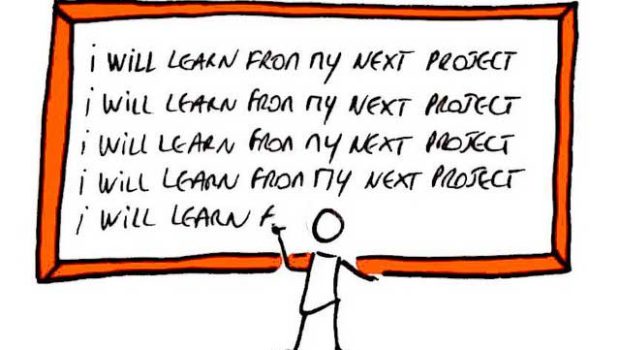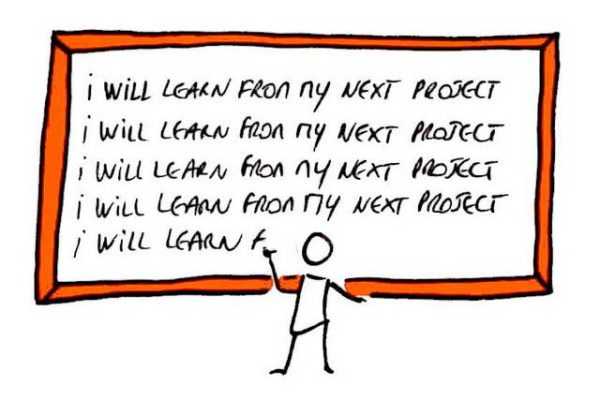How to Avoid Project Management Mistakes?
With the term Project Management comes the challenge of timely delivering the quality projects. The challenge is faced by the entire team including the project manager. Ideally the project should have 100 percent accuracy as the entire team puts in their effort to complete it but making it practically possible is difficult.
One can dream of it but practically there is always a possibility of flaws and mistakes happening and the amazing point is they are completely unknown until someone points it out. Mistakes gives us a chance to learn and improvise. Let’s improvise some of the common small mistakes contributing to a big change.
1. Detailed Project Plan
Project plan is the first ladder which has to be stepped correctly. There are three cases when a project fails just because of the poor start first, having no plan second, having incomplete plan. Also if the project objective does not match with the organization’s objective, result of all three will be project failure. So, most important thing before starting the project is to properly define the project. Define the core elements such as objective, challenges, possible outcomes, available time frame, resources available.
Work with your team and discuss every possible aspect involved in the project. Define short term goal and long term goal to make it simple. Jot down the challenges that might come and measures to solve them with possible outcomes. Estimate the time required for task completion.
2. Good Team Selection and Engagement
Select the team members who have required skill sets for the project. Do not go by selecting team based on the availability of a person. A person might be available for longer hours but the work productivity would be very less. Focus more on quality of the person rather than quantity of time for which s/he is available.
To select a team, manager may review their earlier task performances and then make a team. Even the new members should be given a chance if manager finds potential in them. Instead of assigning the work, team should be encouraged to take the responsibilities on their own depending on the skills. This brings the sense of ownership in a person. Members should be given chance to share and discuss the ideas to complete the project.
Make sure the team has understood the project and is committed to work together. Clashes in team will affect the work completion. Games would help to improve team building and support. Ensure that the work is equally divided among the members and there is no burden on single person. Each member should be clear with the responsibility to abide to.
Often the project managers discourage the ideas of team members, thinking only their ideas are the best. As a result the team confidence drops down and they don’t have any stake if the project gets successful because they did what was asked to do.
Ignoring the suggestion would create problem in the project. So a collective plan should made. This make the member to see the project as their own rather than company`s project.
3. Proper Resource Allocation
It is always advised to prepare a list of requirements. Project involves different stages where required resource would differ in each step. So a proper planning of budget allocation in a team in different timeline should be done. If the allocation is not done efficiently, there will be chaos in the team
Team members should be given freedom to explain the requirement as they are experienced and know about the work. All the support required in case of IT or any other should be predetermined to avoid discontinuity in workflow in later days. Thus, maintaining the continuity in the work. While determining the resource requirement, words like some, more, should be avoided and focus should be on accuracy.
The resource requirements should be kept in records as with time no one should complain about the requirement not catered to.
4. Clear Communication
Communication is the most important factor to know the position of project. If the team members are not on the same page, it leads to shifting the blame on other person’s head. For any change in decision, team structure, roles etc., if the team members are not informed, they end up making mistakes and generating issues which would have been avoided.
Communication is the lifeline factor of any project. If there is any change in system, directly communicate to the team members without fail. The upper management also should be kept informed about any change and its effects in project status, risks (if any), issues (if any). Transparency between the team and upper management gives a back support to the team and builds trust on the team.
5. Timely Work Review
As the project gets started, it is important to review the activities and tasks being done by the team. Many a time team member complain that they don`t get any guidance from the manager for clarifying their confusion. If a manager does not guides the team or doesn’t address the problem faced by the team, it would result in a big problem at the end affecting the project quality, time of delivery, mismatch in the quoted requirement and delivered product. Manager should spend time with the team reviewing the work and guiding the team when required.
During the work delegation meeting, date of 1st work assessment should be decided and accordingly as per requirement later review meetings can be arranged. This will keep the manager and team informed about the challenges being faced by team and together appropriate solution can be obtained. If the team requires any support for task completion, regular assessment will ensure the team is provided the aid.
Regular assessment doesn’t mean to micromanage the work. Everyone should be given complete freedom to complete the work in their own way. This also doesn’t mean to compromise on the quality. Members in a team are selected for their skills and expertise so they feel responsible and valued. Micromanaging will resist their full potential to perform. So trust the team members and take care of their requirement to work.
6. Clearly define process
As the meeting of project discussion is done, there is always a possibility of members, customer refraining from the discussed points. This is because of the human behavior that things may slip from the mind. With the completion of the project, company handovers the Project A to the customer and customer get unsatisfied and complain they asked for result B. So again there is a breach in company-customer relationship.
To avoid such situations, each process involved in project should be discussed and documented. The copy should be signed by both company and customer. Every team member should stick to the process and follow it.
7. Lesson Learned
Once the project is delivered and accepted by client, project team have an attitude of “finally it’s over”. But still team needs a retrospective meeting to find out what went good, what went wrong, which things could have been executed in much better way.
Such meeting gives a 360 degree analysis of the project as people now look at it as the third person. This helps to share the positives and negatives freely. The discussion in retrospection meet should be kept for the knowledge for future projects.
Author Bio:
Jane Thomson is a Content Marketing Manager at GreyCampus with five years rich experience on developing content for professional certification courses like PMP- Project Management Professional, PMI-ACP, Prince2, ITIL (Information Technology Infrastructure Library), Big Data, Cloud, Digital Marketing and Six Sigma.











![Know More about Headphones [Infographic]](https://technofaq.org/wp-content/uploads/2017/05/Know-More-About-Headphones-150x150.jpg)





